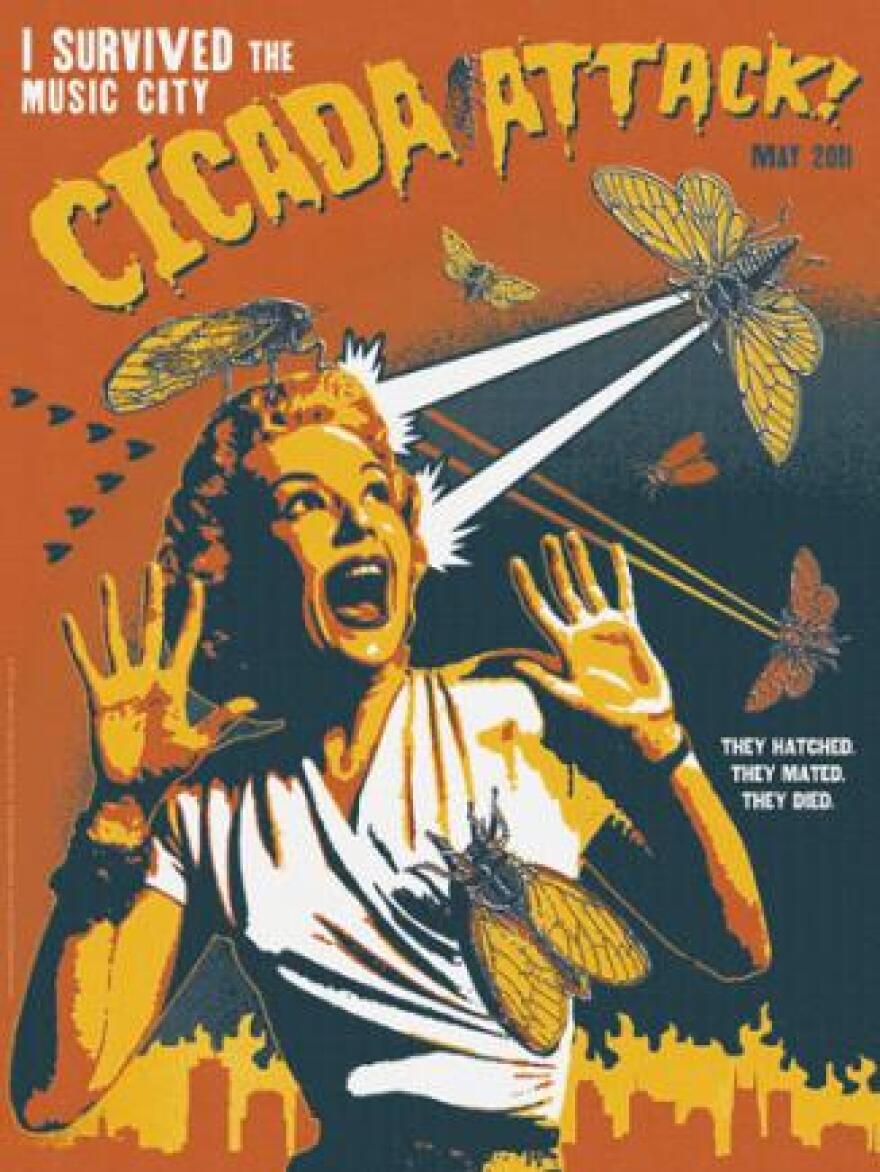One more reason to be thankful, New Hampshire: we did NOT experience the periodic cicada invasion this summer. You've likely heard about the mass synchronized emergence of billions of periodic cicadas this summer across the Eastern Seaboard from Virginia north to New Jersey, New York and as far as northern Connecticut - NOT New Hampshire.
Cicadas emerge every 17 years. This year's particular brood was conceived in 1996 and before that in 1979. The next projected emergence of the brood will be in 2030. However other smaller broods of periodic cicadas emerge in thirteen year intervals.
After 17 years underground, cicadas emerge from the forest soil. They molt their exoskeletons, unzipping their shells from the inside out. They climb trees where males "sing" in a collective regional chorus to attract females. They "fly united" in nuptial flight, females lay eggs and they all die.
Among the interesting cultural responses to insects invading the suburbs are cicada recipes. People eat them in cookies, quiche, tacos, on pizza. One ice cream parlor in Columbia, Missouri offered Cicada ice cream in 2011. You won't find that locally- NOT in New Hampshire. We're too far north for the hordes of periodic 17-year cicadas but New Hampshire is home to smaller annual cicadas which emerge each year in modest numbers.
The 17-year cicadas in southern New England are repeating a performance witnessed by the Pilgrims after landing at Plymouth Rock in Massachusetts in the 1630s. Imagine that: exotic, foreign creatures regarding one another on the shores of the New World!








